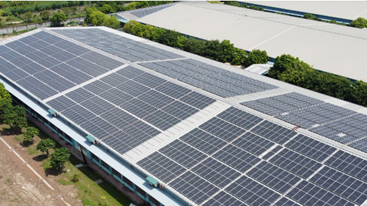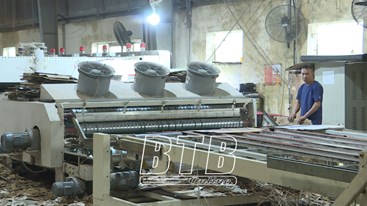Sunday, 19/05/2024 | 18:10 GMT+7
Australia’s national science agency is collaborating with leading universities on an 8.3-million Australian dollar ($8.17 million) research collaboration to use enzymes to produce biofuels from waste plant feed stocks.
The Commonwealth Scientific and Industrial Research Organization’s Energy Transformed Cluster on Biofuels seeks viable ways to transform waste plant materials into a sustainable low-emission fuel for cars, trucks and even planes.
The three-year Cluster on Biofuels collaboration will
involve C.S.I.R.O. and the Australian National University, the RMIT University,
the University of Queensland and the University of Manchester in Britain.
The cluster will use enzyme biotechnology to develop the
transport fuels of the future in a sustainable way by improving production of
second generation biofuels.

The widespread use of biofuels from waste material will
reportedly have two benefits – it will allow for carbon-neutral transportation
and encourage the cultivation of food crops.
Biofuels are considered carbon neutral in the sense that the
carbon released during their use is balanced by the carbon sequestration that
producing the biofuels creates. In the case of biofuels derived from plant
material, the growing plants absorb and store carbon dioxide and this reduces
the human contributions of global warming.
Increased biofuel use would also increase the cultivation of food stock such as wheat, sugar cane and corn. The ability to make use of the waste products of these crops would give them additional value while assuaging fears of food shortages.
“Using raw plant materials which would otherwise be
considered waste, second generation biofuels generated using enzyme biotechnology
processes are a sustainable and viable replacement for transport fuels derived
from oil,” said Professor Chris Easton of the Australian National University.
The participants in the research cluster have reportedly
identified promising enzymes and sources of enzymes and are working to improve
them and produce them on a large scale to make their use in biofuel production
commercially feasible.
The transport section is said to be the third largest
producer of greenhouse gas emissions in Australia. It is estimated that
biofuels from waste plant feedstock has the potential to provide 30 percent of
Australia’s future transport needs.
Recently, researchers at the University of Illinois and
Washington State University in the United States also worked to use enzymes to
produce second generation biofuels, though their breakthrough came with working
from a nonfood source related crop known as switchgrass.
The American researchers studied the digestion processes of cows and were able to find several enzymes within the cow’s rumen that were capable of breaking down switchgrass which they believe have applications in the biofuel industry.
Source: ecoseed.org








.jpg?w=367&h=206&mode=crop) Energy efficiency and conservation usage is an important aspect of the national energy development strategy
05/03/2024
Energy efficiency and conservation usage is an important aspect of the national energy development strategy
05/03/2024
 Challenges and Opportunities to promote energy efficiency market in Vietnam
Challenges and Opportunities to promote energy efficiency market in Vietnam
 The Ministry of Industry and Trade requests government agencies to coordinate in organizing Earth Hour 2024
The Ministry of Industry and Trade requests government agencies to coordinate in organizing Earth Hour 2024
 Consultation on Energy Efficiency Boiler Catalogue and Wood Drying Guideline
Consultation on Energy Efficiency Boiler Catalogue and Wood Drying Guideline
.png?w=367&h=206&mode=crop) Request for expression of interest - C2.1.13: Capacity Building on energy efficiency policies development
Request for expression of interest - C2.1.13: Capacity Building on energy efficiency policies development
 Son Ha Co., Ltd, applies energy efficiency and conservation measures
Son Ha Co., Ltd, applies energy efficiency and conservation measures
 Phuc Kien Co., Ltd., is effectively implementing energy-saving measures
Phuc Kien Co., Ltd., is effectively implementing energy-saving measures
 Request for expression of interest - C2.1.12: Independent monitoring of safeguards implementation
Request for expression of interest - C2.1.12: Independent monitoring of safeguards implementation